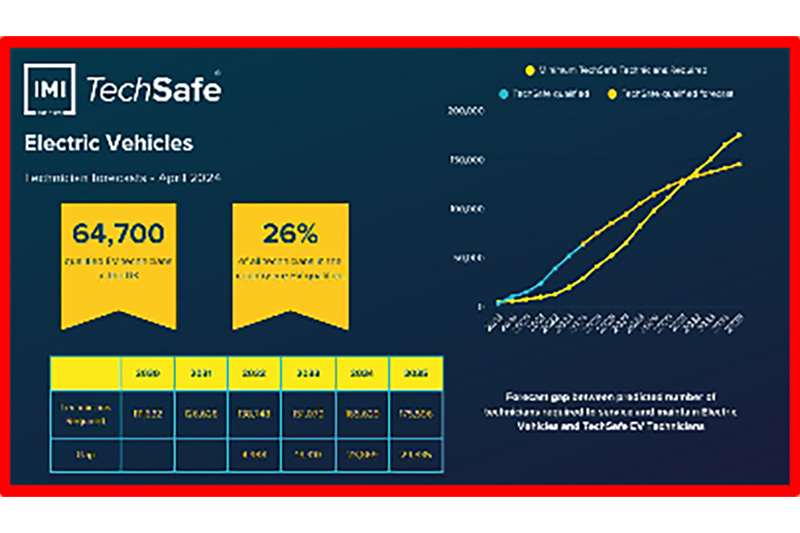
The Institute of the Motor Industry (IMI) has highlighted the urgent need for skills support for the automotive aftermarket, following the government announcement of a £63 million investment fund in EV infrastructure.
According to the latest data from the IMI, 2024 saw a 6% drop in technicians gaining an EV certification, despite the EV parc growing significantly through the year.
Sarah Sillars OBE HonFIMI, Interim CEO at the IMI said: “It’s encouraging to see the government’s commitment to addressing some of the big barriers to electric vehicle adoption with this latest investment in infrastructure. However, it seems there is a lack of understanding about the critical role of EV skills to support net zero ambitions.
“Around 26% of the UK technician workforce currently holds an EV qualification, which means it can be a postcode lottery for an electric vehicle owner or driver to find a garage that can service or repair their vehicle” Sarah continued. “And this is only going to get worse as the EV parc grows. Our current estimates suggest that demand is likely to outpace supply by over 29,000 technicians by 2035.”
IMI Non-Executive Director, Ian Plummer (Commercial Director at Autotrader), added: “With more than half of consumers saying upfront expense is the biggest blocker to going electric, affordability is clearly the key to unlocking mass adoption. Support from government to ensure no one is left behind in the electric transition, including consumers and highly skilled technicians who can work safely on electric vehicles, would be a vital boost to mass adoption, if targeted correctly.”
The IMI is repeating its call for government to address the workforce needs of the automotive sector. Despite contributing significantly to employment, net zero ambitions, and clean growth, the automotive aftermarket is reportedly being overlooked across several government policies.
The IMI’s manifesto, ‘Driving the Future of Automotive Professionals’ sets out steps to attract new talent into the sector, create defined career pathways, support the up-skilling of the existing workforce, and ensure the industry is equipped with the skills it needs for the future.









